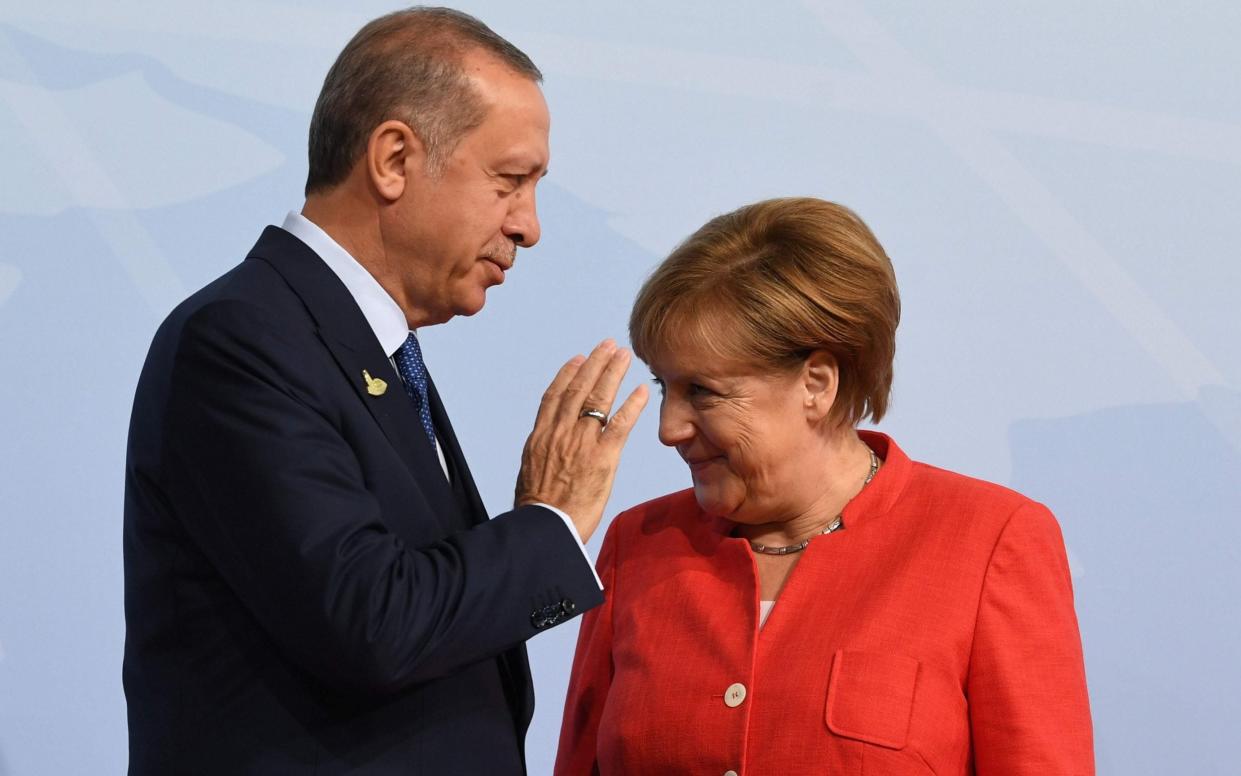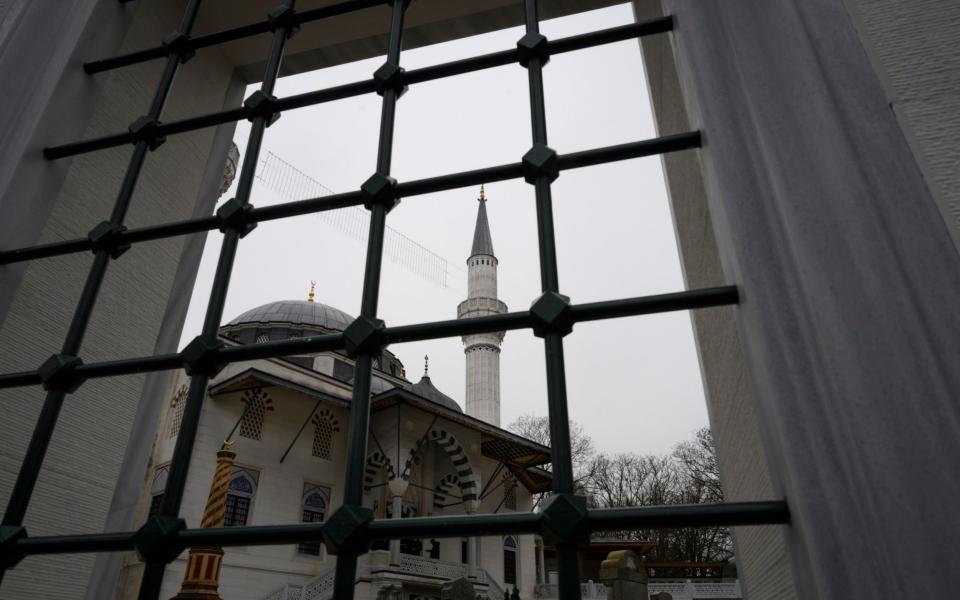Angela Merkel's successor under fire for giving Turkish religious group a say over school textbooks

- Oops!Something went wrong.Please try again later.
- Oops!Something went wrong.Please try again later.
- Oops!Something went wrong.Please try again later.
One of the main contenders to succeed Angela Merkel as chancellor of Germany has come under fire over a decision to allow a controversial Turkish Islamic association a say in the content of German school textbooks.
Armin Laschet, who is running as chancellor candidate for Mrs Merkel’s Christian Democrat party (CDU) in September’s elections, is already struggling with lacklustre support in the polls and facing a strong challenge from the Green Party.
Now he has been accused of giving the Turkish government influence over teaching in German schools in a bid to win votes from Germany’s Turkish minority.
Mr Laschet was nicknamed Türken-Armin, or Turkish Armin, in his early career for his courting of the Turkish vote.

He is currently head of the regional government in North Rhine-Westphalia, Germany’s most populous state, which this month set up a new commission to oversee Islamic studies classes in schools.
The controversy centres on a decision to invite Ditib, one of Germany’s largest Islamic associations, to join the new panel. Ditib, which provides imams for 900 mosques across Germany, insists it is independent of the Turkish government of President Recep Tayyip Erdogan.
But the imams it appoints are Turkish civil servants and it has come under investigation in Germany on suspicion of spying for the Turkish state.
The new commission will not have any say in standard compulsory classes at German schools, and will only oversee optional Islamic studies classes.
But opponents of the decision to include Ditib argue it could exploit the classes to teach a pro-Turkish agenda.
North Rhine-Westphalia is one of nine of Germany’s 16 states to allow pupils to take the optional courses, which are not confined to religious studies but also cover Islamic history and other faiths, and aim to teach openness and tolerance.

Ditib sat on an earlier advisory committee which used to oversee the classes but was forced to step after it came under official investigation over a spy scandal.
Prosecutors opened an investigation against the association in 2017 on suspicion of spying against members of Germany’s Turkish minority who were critical of the Erdogan regime.
At the time Turkey was carrying out an authoritarian crackdown on dissent in the wake of 2016’s failed coup attempt against Mr Erdogan.
The investigation did not result in any prosecutions and was subsequently dropped. Ditib was founded in Ankara in 1984 as a branch of Turkey’s directorate of religious affairs.
It claims it is now independent, but the imams and religious teachers it sends to Germany remain Turkish civil servants and depend on Turkey for future employment when their postings end.
The decision to include the associations on the new commission has provoked anger in Mr Laschet’s own party.
“Ditib is Erdogan's extended arm,” Christoph Ploss, the CDU regional leader in Hamburg, told Bild newspaper. “I say clearly: no cooperation with Ditib.”
The North Rhine-Westphalia government said the regional Ditib association in the state had taken steps to ensure its independence.
“The influence of Ditib committees, which are largely appointed by the Turkish state, has been significantly restricted by the regional association and has been completely excluded from Islamic religious studies,” a spokesman for the regional education ministry told Frankfurter Allgemeine Zeitung newspaper.

